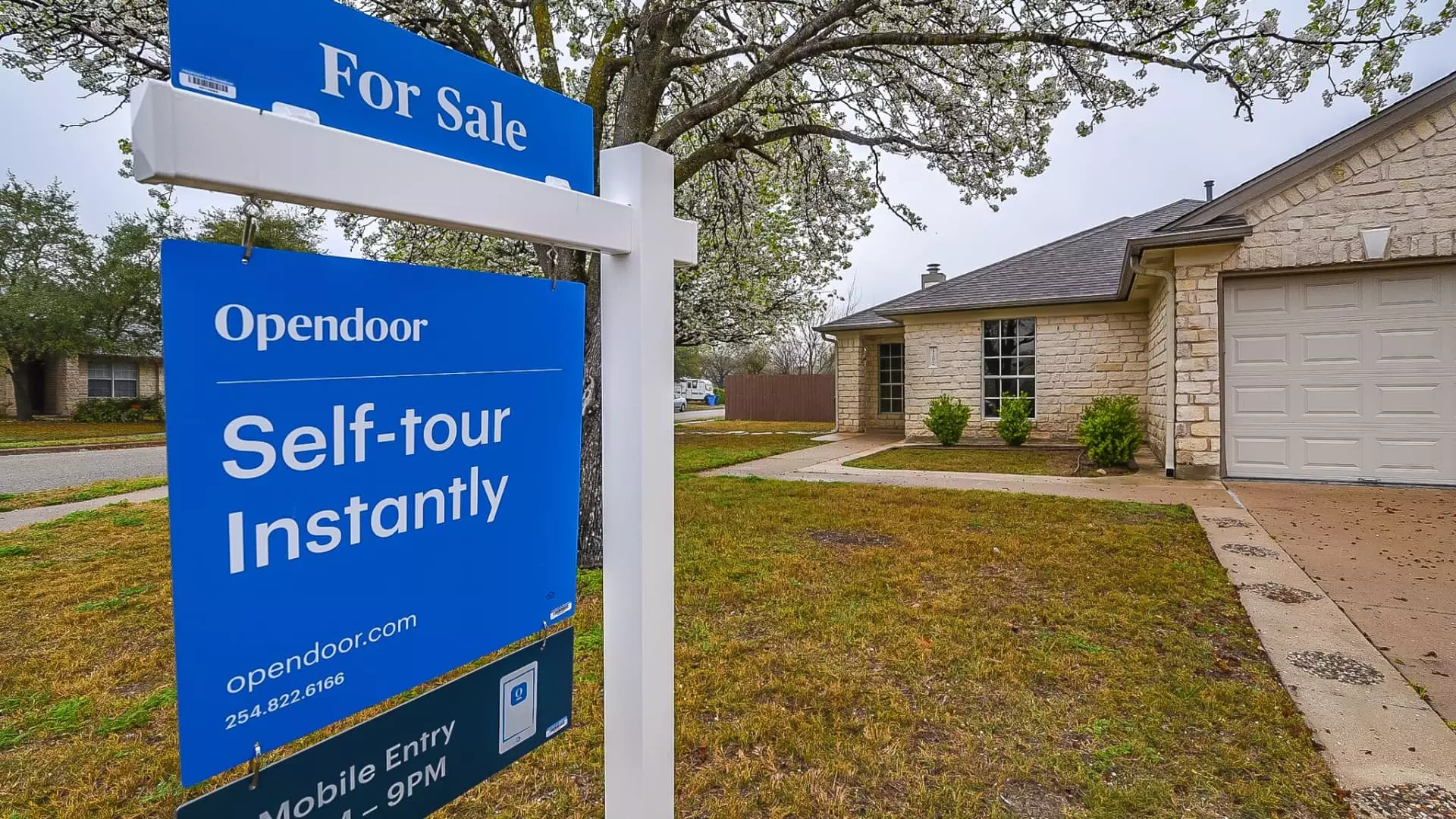Opendoor’s recent rollercoaster performance showcases the tenuous nature of its revival attempt. Once a darling of the pandemic-era housing boom, the company’s trajectory is riddled with the pitfalls of interest rate hikes, shifting market dynamics, and widening financial losses. In late June, its stock was so battered it hovered around 51 cents—an existential crisis that threatened its future existence. The company’s consideration of a reverse split was a testament to how dire its circumstances had become, aiming to artificially inflate share prices and sustain its Nasdaq listing. That looming specter has now been avoided, but the fundamental issues persist, revealing a fragile foundation rather than genuine resilience.
The Illusion of a Comeback
What fuels Opendoor’s recent surge? Largely, it’s a speculative gamble driven by hedge fund confidence—most notably, Eric Jackson’s bullish outlook that envisions the stock reaching $82. However, such optimism appears disconnected from reality. Recent earnings, which showed modest improvements in revenue and narrowed losses, hardly justify the soaring valuation. The numbers indicate a company struggling amidst a sluggish housing market, with revenue declining sharply and projected sales plummeting further. The belief that a return to growth is imminent is more wishful thinking than grounded analysis, especially considering how mortgage rates have continued to strangulate housing demand.
A Struggle to Find Its Feet
Opendoor’s core model—buying and selling homes through a tech-driven approach—has been severely impacted by the rising cost of borrowing. The company’s revenue, initially soaring during the pandemic, has halved due to waning demand. Its recent earnings report revealed a narrow net loss of $29 million, an improvement from prior losses, but still a far cry from profitability. The projected decline in home acquisitions and lower marketing expenditure reflect a painfully cautious stance towards an uncertain market. It’s clear that the company is retreating rather than advancing, unwilling or unable to rough out the storm of rising interest rates and declining buyer enthusiasm.
Strategic Shift or Idealistic Dream?
In response to these challenges, Wheeler highlighted a strategic pivot away from pure “iBuying” towards a referral-based, less capital-intensive model. While this pivot might sound promising on paper, it raises questions about the company’s capacity for sustainable growth. This move, labeled as the “most important strategic shift in our history,” may be more of an acknowledgment of defeat than a genuine breakthrough. It could serve as a way to buy time, but it does little to address fundamental issues: declining demand, commission compression, and a market that remains hostile to that kind of innovative real estate speculation.
From Market Darling to Speculative Play
The wild swings in Opendoor’s stock price demonstrate the power of hype and the peril of over-exuberance. The recent rally was driven by a cocktail of investor enthusiasm, hedge fund backing, and speculative hopes rather than concrete improvements in operations or financial health. While the company seeks to tell a compelling story of turnaround and resilience, the reality remains stark. The market has shown itself to be wary of hope without substance, especially when that hope is based on assumptions of a quick rebound in housing demand amid persistent economic headwinds.
The Broader Implication: A Case Study in Market Overreaction
Opendoor’s experience underscores a broader truth about financial markets: exuberance often precedes performance. The company’s dramatic rise from near death’s door to renewed investor interest reflects how speculative fervor can temporarily distort valuation, blinding investors to deep-seated issues. For a company still grappling with declining revenues, mounting losses, and an uncertain macroeconomic environment, the pursuit of market optimism must be tempered by realism. Despite the charismatic messaging from Wheeler, the core challenges remain intact, and rosy forecasts are unlikely to match the harsh realities of a housing market in disarray.
While the company’s strategic pivot could serve as a foundation for a more sustainable future, it remains to be seen whether it will be enough to turn the tide. For now, Opendoor’s story is a cautionary tale: markets can be fleeting, and hope should never substitute for solid fundamentals. The fact remains that without a major overhaul of its business model, a realistic assessment of market conditions, and a clear path to profitability, the company’s recent ascension might be nothing more than a fleeting mirage amid a bleak landscape.

